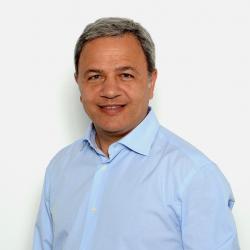
This time last year, I wrote an article on digital technologies for MedTech Week, focused on the importance of digital diagnosis. I have always been a keen advocate of digital and combining my passions for medicine and engineering is what led me here.
Last year’s article was from a pre-COVID world and no-one had any idea what was around the corner. We are now in a completely different place and I wanted to relook at this and how digital tools, such as remote management, have come into the spotlight and even accelerated in use.
Considering the increasing pressure on healthcare systems everywhere, digital was already becoming a mainstream solution. Who could have known just how great the need would become to keep vulnerable patients out of hospital and away from COVID?
Remote management has been part of our offering for some time and key to what we do. Alongside the excellent data and very positive feedback from doctors, we’re seeing an increased demand for use. One of our diagnostic tools allows physicians to detect the risk of heart failure symptoms worsening up to 30 days in advance, so patients can be contacted and provided with support on how to manage symptoms to keep them out of hospital. Which is more important than ever for vulnerable people with long-term chronic conditions such as heart failure.
When the storm began in March, there was a lot to think about as we adjusted to lockdowns, social distancing and new ways of working. We all had to think about how to adapt and most importantly, how to support customers? With my home country of Italy being in the eye of the storm, we wanted to do as much as possible to help the doctors, nurses and hospitals we knew so well. Working closely with them, the team set up web-based training sessions and communicated to hospitals how we could support remotely.
As mentioned, we have seen a marked increase in demand for remote monitoring during COVID-19 as more and more hospitals embrace its benefits. Colleagues in the UK took the initiative to offer their support to one large London hospital by arranging to contact over 200 patients who had dropped off remote monitoring and to date have managed to reactivate 77% of the patients contacted, who were very positive to be contacted and felt cared for.
I am continually amazed at the impact medtech has on people, hearing from my colleagues and from patients themselves about how they have been able to do amazing things. Through COVID, I have been inspired by technology, by colleagues and by physicians. I encourage my team to be change agents, especially as we begin to see the green shoots of recovery and advocate now, more than ever, that we must help everybody to embrace digital technologies in daily practice. This will go a long way in making the post-COVID world a smarter and more digitally enabled place.
Original article first published on MedTech Views by MedTech Europe, available here